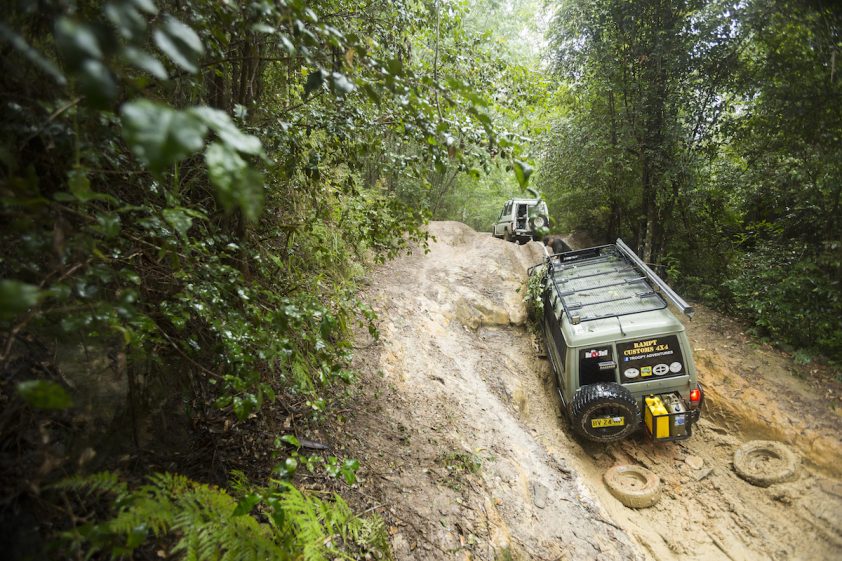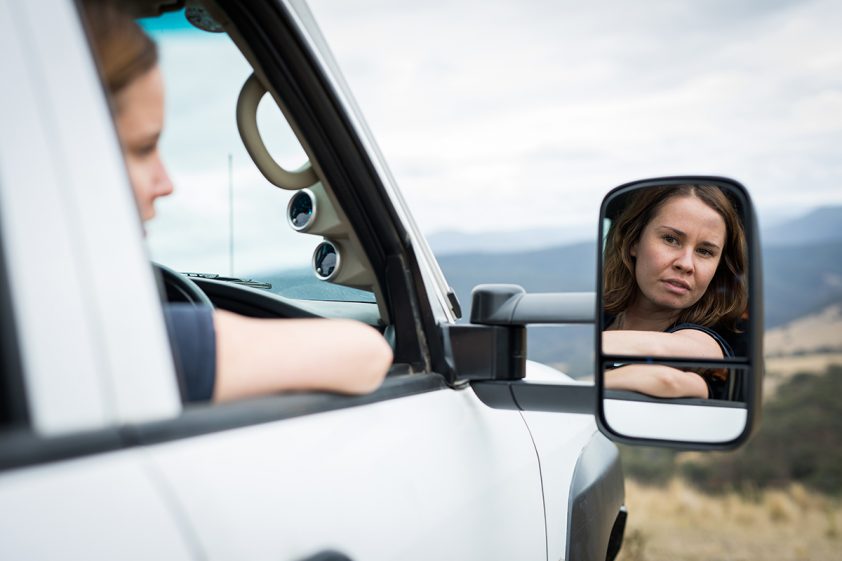Electronic stability control (ESC) for caravans is a key solution for keeping you safe in an emergency situation. If you’re looking to install ESC on your caravan, what features should you look for? We spoke with AL-KO Electronics Engineer Andreas Groell to get his insights.
- Caravan Sway Control
Caravans can be subject to dangerous sideways movements due to a range of different circumstances, such as high winds or difficult weather conditions, having to take evasive action, or buffeting from trucks or other vehicles on the road.
The sway effect, where the caravan is swinging from side to side behind the tow vehicle, can occur in these situations. A build-up of these swings could cause the caravan to go into a sway sequence and overbalance, potentially taking your car with it.
This is where a stability controller comes in. The system detects the sideways movement of a caravan, and reacts to bring the caravan back in line with the towing system.
Electronic stability control (ESC) does this, as the name suggests, electronically, applying the brakes to the caravan. The AL-KO ESC continuously evaluates towing data and when critical sideways movements are recognised by the system, it immediately activates and applies the electric brakes to bring the caravan back into line.
- All-wheel Braking in an Emergency
By braking all wheels on the caravan simultaneously, AL-KO ESC can respond to an issue as fast as possible the instant a dangerous sideways movement is detected. This is particularly important in an emergency situation, such as in the event of having to swerve suddenly to avoid a car or an animal on the road ahead. It also works effectively to reduce the speed of the car and caravan and maintain line and stability, which allows you to perform an emergency avoidance manoeuvre.
The ESC system was specifically designed to brake all wheels simultaneously. AL-KO found that there was no distinct advantage to braking caravan wheels independently, as is the case with ESC in cars; independent braking on a caravan simply slows down the braking process and increases the stopping distance.
- Ability to Work in Off-road Conditions
It’s important to have a stability control system that continues to work effectively in off-road conditions, such as driving on corrugated or gravel roads.
While some systems automatically deactivate when driving off-road, to keep you safe it’s important that your ESC continues to operate in off-road conditions such as driving on corrugated or gravel roads.
It may make sense to deactivate the ESC in extreme 4×4 conditions such as rock-hopping or driving down heavily rutted riverbeds, as the very severe tilting of the caravan may cause the ESC to inadvertently activate the brakes. However, it’s important that the driver intentionally makes this decision (rather than it being made by the system). In this instance, AL-KO’s ESC can be connected to the tow vehicle using a separate two-pin connector rather than the normal 12-pin connector.
- Customised to Your Caravan
Some systems offer a ‘one size fits all’ approach to ESC, but it’s important to make sure that your stability control system is fully calibrated and customised to each caravan’s specifications, including weight, number of axles and brake size. This means there is no compromise on safety.
- National technical support network
It makes good sense to think about what level of support you will have while out on the road in the event that there happens to be any issues with your stability control system. AL-KO ESC is the only system designed and manufactured in Australia for Australian conditions, and AL-KO has strong customer service and engineering backup available in Australia. With over 200 factory trained and certified ESC installers nationally, there is likely to be local assistance available wherever you are on your journey.
Read about some other clever innovations designed to keep you upright and on the road when caravanning.





